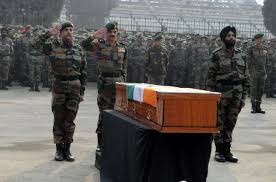
US bill to designate Pakistan as a sponsor of terrorism: Boost for India’s anti-terror drive
India’s strategy of isolating Pakistan in the aftermath of the Uri terror attack has struck a powerful chord in the US. A day after US Secretary of State John Kerry chastised Pakistan’s Prime Minister Nawaz Sharif and asked him to prevent terrorists from using his country as safe havens, two American legislators introduced a legislation in the US Congress to designate Pakistan as a state sponsor of terrorism.
The bill, H.R 6069 or the Pakistan State Sponsor of Terrorism Designation Act, calls upon the US administration to make a formal assessment on the matter within four months of its passage.
The move to brand Pakistan as a terrorist state is seen as a triumph of Indian diplomacy as External Affairs Minister Sushma Swaraj heads to the US on a concerted drive to corner Pakistan on account of its alleged complicity in the Uri terror attack in north Kashmir, which killed 18 Indian soldiers.
The bill is seen as a huge setback for Mr Sharif as he gears up to make a speech in the UNGA, in which he is expected to highlight India’s alleged human rights abuses in Jammu and Kashmir.
The US’ admonition of Pakistan underscores Washington’s growing wariness with Islamabad’s systematic duplicity on terrorism, and will bolster India’s drive to isolate Pakistan in the international community.









